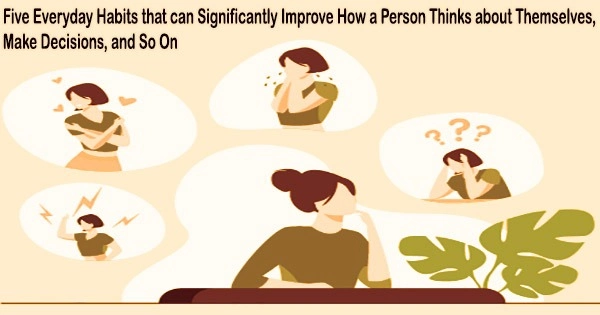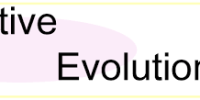Our emotions are the most intimate, personal, and biological expressions of who we are. Our feelings tell us what we need and want, as well as what we should seek, choose, avoid, or accept. They energize us to make changes in our life and strengthen our relationships with others.
Unfortunately, those who experienced childhood emotional neglect grew up in homes that discouraged and interrupted their emotional awareness, as well as their ability to harness and use this valuable resource from within.
Emotional neglect occurs when emotions are disregarded or viewed negatively in your childhood household. As a result, you receive a silent but blatant message: “My feelings don’t matter.”
If you believe this message is real, you will naturally discover how to live a life separate from your emotions. And, while it’s natural that you did this to adjust to your surroundings, you can’t isolate your sentiments without also isolating the essence of who you are.
The scar that emotional neglect left might be considerable, but it does not have to last a lifetime. You can reconnect with your feelings and begin to use them as they are meant to be used.
Every feeling you have carries a message from your body, many of which are very useful. Your feelings can energize you, direct you, motivate you, and even connect you to others. The process of mending childhood emotional neglect is reconnecting with the feelings you’ve been avoiding in order to listen to their messages and harness their energy.
The following are some healthy daily routines that have been found to be very beneficial for persons in recovery. Starting something new, like any new habit, requires dedication and openness. However, in many ways, reconnecting with your feelings, listening to them, and acting on them makes you feel more awake and alive.
Five Daily Exercises to Harness and Use Your Emotions:
Acknowledge and Welcome Your Feelings
This is the foundation of recovery because emotions underpin everything you do. You learnt to ignore critical sensations and messages going on inside of you because you had to block off your feelings in your emotion-free childhood home. The first step is turning inward.
Emotions live in your body and act as a compass for you to observe, trust, and follow. When you allow your emotions to speak to you, you’ll notice that they contain important messages that reveal a lot about yourself.
Daily Practice: Tune in to your feelings. Identify and write down your feelings three times a day.
Work on Trusting Yourself
When you attempt to push down your feelings, you can lose contact with your own gut sense. You may become overly reliant on the ideas and perceptions of others, making it difficult to follow your own rudder in decision-making.
Alternatively, you could sit back and let things happen in your life rather than knowing what you want and need, taking the driver’s seat, and making them happen for yourself. The more in tune you are with your own feelings, the better you can make decisions you trust.
Daily Practice: Before any decision you make, be the first and last person you go to for guidance.
Increase Your Opportunities for Enjoyment
Begin thinking about what you like, love, and find pleasure in. Discovering your interests and passions is one of the most rewarding aspects of recovery. And it will be much more valuable when you discover things that bring you joy, a sensation that may have been suppressed by childhood emotional abuse.
In a Duke University study by Hanson, et al. (2015), researchers found that the ventral striatum, the feeling and reward center in the brain, is underdeveloped in the adolescent brains of the emotionally neglected. Childhood emotional neglect literally changes the structures of your brain. Fortunately, this is something that can be strengthened and developed even in adulthood.
Daily Practice: Keep a journal of your likes and dislikes. Incorporate things that give you joy into your routine.
Challenge Your Impulses
You may feel overwhelmed or dispersed if you do not have enough awareness or knowledge of your emotions. When your emotions go unchecked and uncontrolled, they can become jumbled and difficult to distinguish, much like an orchestra without a director. You may find yourself doing things you shouldn’t, failing to do things you should, and being overly judgmental of yourself. With some attention, patience, and self-compassion, you can train your brain to manage your emotions and exercise more agency over your impulses.
Daily Practice: Every day, do one small thing you don’t want to do (but should do), or stop yourself from doing something you want to do (but shouldn’t).
Uphold Your Boundaries
It takes strength to say “no” when you have learned it’s wrong, weak, or selfish. The more you can identify your emotions, the easier it will be to identify what you need, and sometimes your need involves setting a boundary with others.
Setting limits with people in your life is critical to maintaining healthy relationships. You are allowed to say “No, I’m not available that day,” “No thanks, I’m not interested,” or simply just “No.” Right before you set a boundary, turn your attention inward and think about what is right for you.
Daily Practice: Try to say “no” more often. Keep track of the number of times you’re able to say no.
The Takeaway –
You have the power to heal your own childhood emotional neglect. With any new practice, allow yourself room for error.Just as the first couple of workouts in a new exercise routine are tiring and leave you feeling sore, the more you stick with it, the better the results will be.
These five daily practices will feel more and more natural as you do them. Your life of connection, motivation, direction, and wholeness is within reach. The path to healing isn’t necessarily easy, but it is well worth your effort.
















